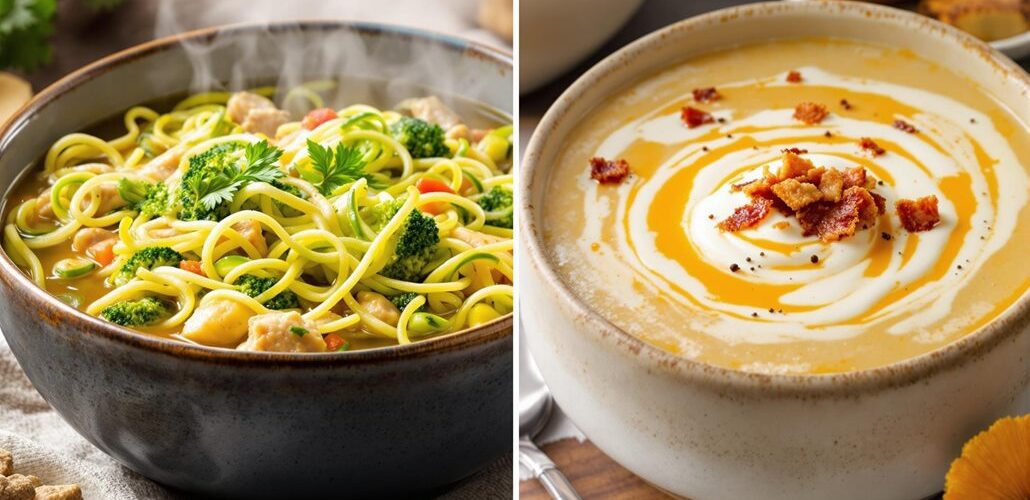
For a quick low-carb canned soup option, consider Kettle & Fire's Spicy Cauliflower Soup, offering just 6g net carbs per serving. Progresso Traditional Chicken Soup is a viable choice if carb content is monitored. Costco's Broccoli Cheddar Soup provides a reasonable 12g net carbs per cup, balancing taste and nutritional goals. Progresso's Broccoli Cheese with Bacon is enjoyable for an occasional treat at 20g net carbs. Roasted chicken and vegetable soup remains a nutrient-rich, low-carb alternative. Choosing carefully guarantees that you not only satisfy your taste buds but also meet nutritional guidelines without compromising your diet. Explore these options further.
Key Takeaways
- Progresso Traditional Chicken soup offers a low-carb option with careful monitoring of carbs per serving.
- Kettle & Fire Spicy Cauliflower Soup provides only 6g net carbs per serving, making it keto-friendly.
- Progresso's Broccoli Cheese with Bacon contains 20g net carbs, suitable for occasional indulgence.
- Vegetable beef soup is a hearty, low-carb canned option for a quick meal.
- Campbell's Chunky Healthy Request line includes reduced-carb options ideal for maintaining a low-carb diet.
Keto-Friendly Soup Options
For individuals adhering to a ketogenic diet, selecting suitable soup options can be challenging due to their potential high carbohydrate content. Soup choices must be scrutinized for their net carbs to guarantee they align with a keto-friendly Meal Plan.
For instance, the Progresso Traditional Chicken soup is often considered a viable option, though careful attention must be paid to its carbs per serving. Homemade soup can be an excellent alternative, allowing for precise control over ingredients to maintain low carb levels.
Additionally, exploring cream of broccoli and cauliflower soup recipes can be a great way to enjoy a creamy, low-carb option. Analyzing pre-packaged options, Kettle & Fire Spicy Cauliflower Soup emerges as a standout, offering only 6g of net carbs per serving, making it a practical choice for those prioritizing both taste and dietary restrictions.
In contrast, Progresso's Broccoli Cheese with Bacon provides 20g of net carbs, which might be suitable for occasional indulgence within a controlled low carb Meal Plan.
Costco's Broccoli Cheddar Soup, with 12g of net carbs per cup, strikes a balance between flavor and carb content, fitting within many keto guidelines.
Best Low-Carb Flavors
Exploring the domain of low-carb soup flavors reveals a variety of options that cater to dietary preferences while maintaining nutritional integrity. Among the notable contenders, broccoli cheese emerges as a quintessential low-carb soup, offering a luscious, creamy texture coupled with the health benefits of broccoli, such as fiber and essential vitamins, within one serving. This flavor provides a satisfying experience without compromising carbohydrate goals.
Canned soup options like creamy tomato or roasted garlic also stand out for their creamy consistency and lower carbohydrate content, providing a flavorful solution for those adhering to a low-carb regimen. These soups are crafted to balance taste and health benefits, ensuring that each spoonful is both enjoyable and compliant with dietary restrictions.
Furthermore, roasted chicken and vegetable soup, when prepared without potatoes or other starchy vegetables, presents a savory low-carb alternative. This option delivers a robust taste profile, enhanced by the presence of nutrients found in chicken and a variety of non-starchy vegetables.
Similarly, vegetable beef soup, devoid of potatoes, offers a hearty meal with considerably reduced carbohydrates per serving. These flavors exemplify how canned soups can be both nutritious and convenient for maintaining a low-carb lifestyle.
Nutritional Considerations
When selecting low-carb canned soups, it is essential to frequently assess their nutritional profile to verify they align with health objectives. A significant factor is the total carbs, which should be limited to 15 grams or fewer per serving to support stable blood sugar levels. This threshold helps reduce the risk of blood sugar spikes, important for individuals managing diabetes or adhering to a low-carb diet.
Additionally, adhering to a ketogenic diet can lead to improved insulin sensitivity and glycemic control, which is beneficial for those with type 2 diabetes. In addition to carbohydrates, sodium content must be considered. While the general guideline recommends less than 2,300 mg of sodium per day, choosing soups with lower sodium helps prevent hypertension and related cardiovascular concerns.
Furthermore, the protein per serving plays a significant role in satiety and muscle maintenance. Ideally, low carb canned soups should deliver 4-7 grams of protein per serving to enhance nutritional value.
Additionally, the fiber content in soups is integral to digestion and overall health benefits. Higher fiber not only aids in digestion but also offsets net carbs, contributing to a more balanced meal.
Shopping Tips for Canned Soups
Selecting the right canned soups for a low-carb diet requires a strategic approach, particularly when steering through the diverse offerings on supermarket shelves. The key to a successful shopping experience lies in deciphering the nutrition labels to guarantee that the chosen soups align with dietary goals.
When selecting soups, make certain to focus on several critical factors:
- Total Carbohydrates: Aim for soups with 15 grams or less per serving to maintain a low-carb diet, paying close attention to misleading serving sizes which can distort actual carb intake. Be mindful of hidden sugars that might be included in some low-fat options, as they can disrupt ketosis.
- Sodium Levels: Opt for reduced sodium options to support heart health, ideally keeping daily intake below 2,300 mg.
- Soup Brands: Compare different brands to identify those offering a balanced nutritional profile, focusing on low carbohydrates, moderate protein, and lower fat content.
- Convenience: Maintain a printed list of recommended low-carb canned soup brands to streamline the shopping process and facilitate healthier choices.
Avoiding High-Carb Soups
Steering through the world of canned soups while maintaining a low-carb diet can be challenging due to the hidden carbohydrates often lurking in seemingly innocent options. Many commercially available soups contain high amounts of carbs, frequently stemming from added sugars and starches. Such hidden carbs can quickly derail dietary goals if not carefully monitored.
A great option for those seeking low-carb soups is to meticulously inspect nutritional labels and aim for soups with 15 grams or less of carbohydrates per serving. Understanding net carbs is essential; this involves subtracting the fiber content from total carbohydrates, providing a more precise measure of the soup's carb impact.
High-carb soups like Chicken Noodle, Beef Noodle, and Cream of Potato should be avoided due to their heightened carbohydrate content. It's also important to be mindful of serving sizes, as an entire can may contain multiple servings, thereby increasing the total carb intake considerably.
Brands like Progresso's reduced-sodium options and Campbell's Chunky Healthy Request line offer lower-carb alternatives, making them a great option for consumers aiming to limit carb intake. These products focus on reducing high amounts of carbs, aligning better with low-carb dietary objectives.
Frequently Asked Questions
What Soup Has the Lowest Amount of Carbs?
Among low carb options, Progresso's Reduced Sodium Italian Style Wedding Soup, Amy's Organic Low-Fat Chunky Vegetable Soup, and Progresso Light Broccoli Cheese Soup each contain 11 grams of carbohydrates per serving, prioritizing nutritional values in meal prep and recipe ideas.
Can I Eat Tinned Soup on a Low Carb Diet?
Yes, you can incorporate canned soup into a low carb diet with careful meal prep. Examine nutrition labels for net carbs and practice portion control. Opt for quick recipes featuring low carb soups to maintain dietary goals.
What Is the Healthiest Canned Soup to Eat?
The healthiest canned soup balances nutritional value, low sodium content, and portion control, while offering diverse flavor variety. Health Valley Organic Vegetable Soup, with ideal ingredients and sodium levels, approaches the benefits of homemade alternatives in maintaining a nutritious diet.
Is Heinz Chicken Soup Low Carb?
Heinz Chicken Soup, according to nutrition facts, is not a low carb option due to ingredients like noodles. For low carb meal prep, consider healthy add-ins or homemade canned soup recipes with reduced carb serving sizes.
Conclusion
To summarize, selecting low-carb canned soups as quick meal options requires careful consideration of nutritional content, including carbohydrate counts and ingredient quality. Keto-friendly varieties often provide the best choices, with flavors that cater to diverse palates while maintaining nutritional integrity. Shoppers should prioritize soups with minimal preservatives and added sugars to optimize health benefits. By avoiding high-carb soups and focusing on evidence-based criteria, individuals can effectively incorporate these convenient options into a balanced, low-carbohydrate dietary regimen.
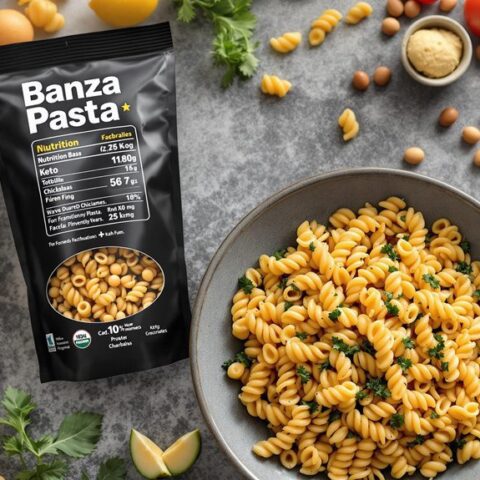
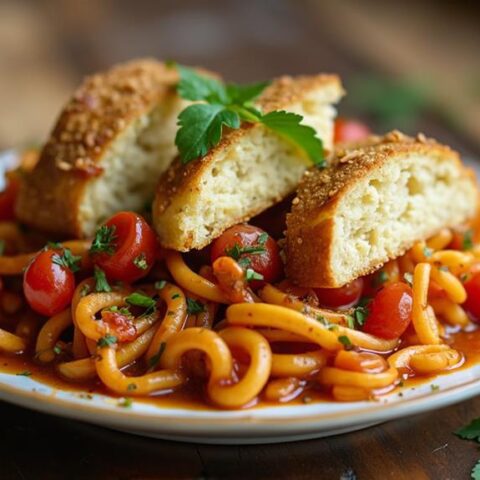


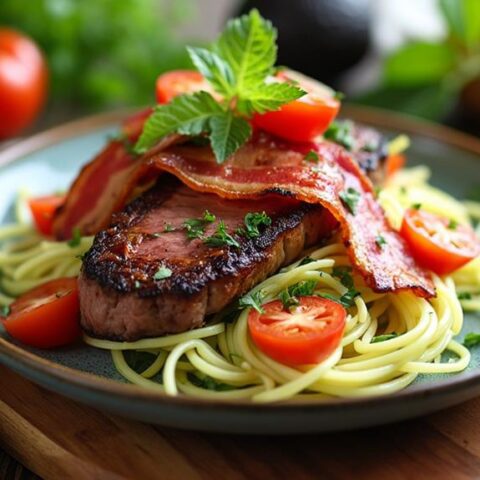
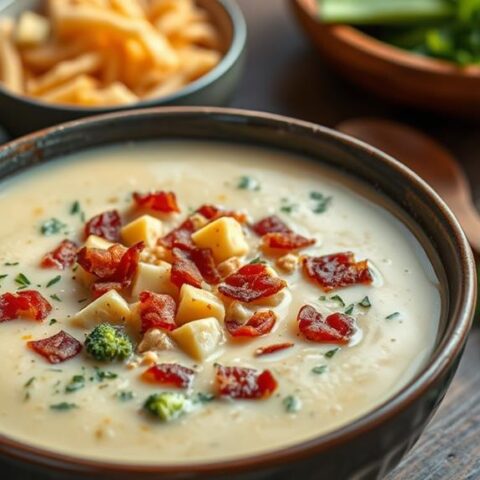




No Comments